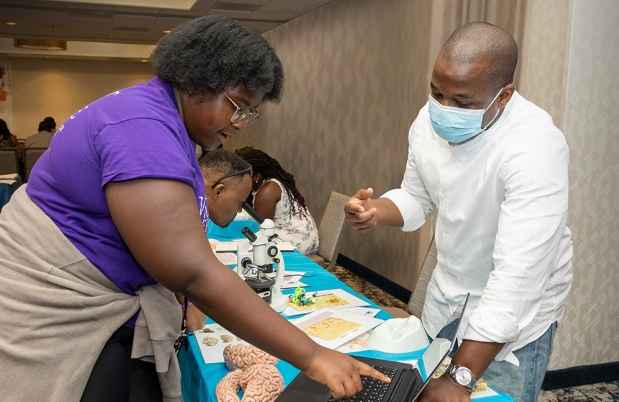Enhancing Mental Health Education Throughout Ecuador
September 28, 2020
In 2019, McLean Hospital and the Universidad San Francisco de Quito (USFQ) commenced a collaboration to develop innovative and engaging campaigns to enhance mental health education—for medical students, medical professionals, and members of the public—throughout Ecuador. Through this heightened awareness, the partnership also hopes to reduce the stigma too often associated with psychiatric disorders.
“The reason why we are looking at places like Ecuador and other underserved areas is that education is a key element of the hospital’s mission,” said Adriana Bobinchock, McLean’s senior director of Public Affairs & Communications and co-leader of the hospital’s public education initiative. “We believe that by educating students, medical professionals, and the public, we will be able to leave a larger footprint, significantly changing how psychiatric care is delivered worldwide.”
Supporting Clinicians
In March 2019, McLean Hospital and USFQ co-hosted a mental health congress in Quito. This three-day conference, “From Adolescent to Adult Mental Health: An Update on Best Practices,” focused on providing mental health clinicians with a review of best practices and opportunities to learn from case studies.
Congress attendees took an in-depth look at understanding and treating different forms of anxiety in adolescents and adults, Ecuador’s current addiction crisis, advances in treating depression, and caring for patients with thoughts of suicide and self-harm. A variety of McLean clinicians offered their expertise on these topics, including Blaise Aguirre, MD, Jim Holsomback, R. Kathryn McHugh, PhD, Stephen J. Seiner, MD, and Ipsit Vahia, MD. The International OCD Foundation’s Jeff Szymanski, PhD, and several clinicians from USFQ also presented at the conference.

The first two days featured lectures about some of today’s most advanced clinical treatments for depression, anxiety, substance misuse, and self-harm and a presentation about what can be done to reduce the stigma surrounding mental health.
Topics for the workshops on the third day included dialectical behavior therapy, electroconvulsive therapy, transcranial magnetic stimulation, ketamine therapy, obsessive compulsive disorder, and anxiety disorders; the use of technology in treating mental health; and the use of social media to address stigma. At the end of the conference, many participants expressed that they already felt more confident in their ability to diagnose and treat some of the more common psychiatric disorders in adolescents and adults.
“Collaborating with McLean for the mental health congress was an exceptional and inspiring project,” said USFQ’s Mariel Paz y Miño Maya, PhD, who was instrumental in organizing the conference. “Together, USFQ and McLean helped educate more than 500 people. Our community started to feel more comfortable talking about mental illness, and more patients reached out for care. The professionals at McLean were so inspiring for my team and me. I cannot wait for the second congress to take place.”
Plans for the second mental health congress in Quito are already underway. The focus for the upcoming conference will be the mental health impacts of trauma, which, according to Bobinchock, historically haven’t been well managed in Ecuador.
McLean staff were impressed by the intense engagement of the attendees at the first congress.
“Our experience in Ecuador, thus far, has been extremely rewarding,” said Bobinchock. “The enthusiastic feedback we’ve received from the attendees and our collaborators has been humbling and inspiring. They are committed to improving mental health care in Ecuador, and so are we.”
Thanking Our Donors
Thanks to a number of generous gifts from McLean donors, the hospital’s Deconstructing Stigma campaign and education outreach initiative efforts continue to thrive, reaching more than two million individuals in 2019.
Media Requests
Journalist or member of the media? We are available 24/7 for media requests.



